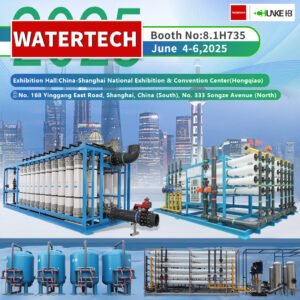Water Treatment & Reverse Osmosis in Guinea
CHUNKE projects of Reverse Osmosis Water Treatment in Guinea including different types of water treatment systems.
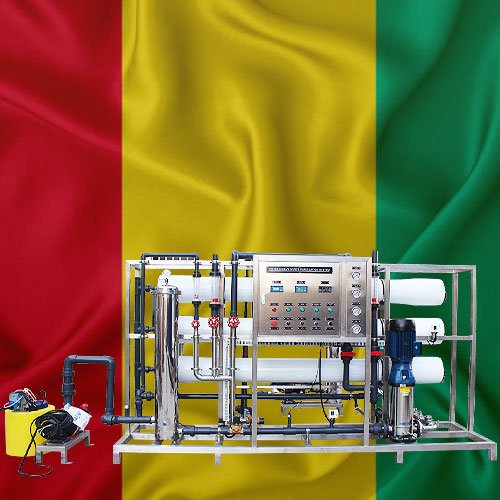
Guinea, officially the Republic of Guinea (French: République de Guinée), is a coastal country in West Africa. It borders the Atlantic Ocean to the west, Guinea-Bissau to the northwest, Senegal to the north, Mali to the northeast, Cote d’Ivoire to the southeast, and Sierra Leone and Liberia to the south. It is sometimes referred to as Guinea-Conakry after its capital Conakry, to distinguish it from other territories in the eponymous region such as Guinea-Bissau and Equatorial Guinea. Guinea has a population of 13.5 million and an area of 245,857 square kilometres (94,926 sq mi).
Guinea, a country located in West Africa, faces various environmental challenges, including deforestation, inadequate water supply, desertification, and soil contamination. These issues have a significant impact on the availability of clean and safe drinking water for the population. To address these problems, water treatment solutions such as reverse osmosis systems, ultrafiltration, and media water filters are crucial for providing clean water to the people of Guinea. In this article, we will explore the importance of water treatment in Guinea and how companies like Chunke Water Treatment are playing a vital role in providing innovative and affordable solutions.
Total internal renewable water resources in Guinea per capita
In 2020, internal renewable water resources per capita for Guinea was 17,208.8 cubic meters. Between 1971 and 2020, internal renewable water resources per capita of Guinea was declining at a moderating rate to shrink from 54,471 cubic meters in 1971 to 17,208.8 cubic meters in 2020.
- Precipitation: 1,651 mm
- Precipitation volume: 405.9 billion cubic meters
- Rainfall index: 1,638 mm
- Volume of groundwater produced: 38 billion cubic meters
- Volume of surface water produced: 226 billion cubic meters
- Renewable water resources per capita: 17,208.8 cubic meters
- Freshwater withdrawals: 0.9 billion cubic meters
- Water productivity: 14.2 US dollars per cubic meter
Guinea is blessed with abundant water resources, including surface water, groundwater, and government water supply. The major sources of water in Guinea are rivers, rainwater, lakes, and freshwater wetlands. These water sources can be treated using various methods such as ultrafiltration systems, media water filters, and reverse osmosis systems. Access to improved drinking water sources in Guinea is currently at 71% of the population, while access to improved sanitation facilities stands at only 19%.
Meanwhile, CHUNKE provides wide range of filtration and economical solutions based on the Guinea’s water resources and our water treatment in Guinea becomes more popular.
- Surface water is water from river, lake which can be treated using different methods, such as Ultrafiltration Systems, Brackish Water RO accordingly.
- Desalination can be used for water from ocean, or sea source, which can be treated using Sea Water Reverse Osmosis Systems; Desalination Systems
- Ground Water or brackish water is from water located in the pore space of soil and rock “Borehole well”, which can be treated using Reverse Osmosis Systems, Borehole Water Filtration Systems, Well Water Filtration Systems, Chemical Dosing, UV Water Sterilizer accordingly.
- Government water supply, which could have high level of hardness or high level of chlorine, can be treated with Water Softener System, Media Water Filters.
The Importance of Water Treatment
Access to clean and safe drinking water is crucial for the overall health and well-being of the population. Unfortunately, many countries, including Guinea, face water shortages and contamination issues. According to the World Health Organization, 1 billion people lack access to enough water to meet their basic needs. In Guinea, inadequate supplies of potable water pose a significant challenge. This is where water treatment solutions come into play.
Water treatment systems, such as reverse osmosis and ultrafiltration, remove impurities and contaminants from water, making it safe for consumption. These systems can effectively treat different water sources, including seawater, surface water, and groundwater. By implementing water treatment solutions, Guinea can improve the quality of its water supply, reduce water-related diseases, and enhance the overall well-being of its population.
Chunke Water Treatment: Providing Innovative Solutions
Chunke Water Treatment, a leading provider of water treatment systems, offers a wide range of filtration and economical solutions based on Guinea’s water resources. With their expertise in reverse osmosis systems, media water filters, and ultrafiltration, Chunke Water Treatment is committed to enhancing the availability of clean drinking water in Guinea.
CHUNKE Projects of Water Treatment in Guinea
Meanwhile, CHUNKE designs and produces water treatment systems that meet the World Health Organization requirements. So, our water treatment in Guinea is suitable for drinking.
CHUNKE has over 15 years of experience as a global provider of B2B water treatment solutions for a variety of applications and industries, we offer a large selection of all types of reverse osmosis, ultrafiltration, electrodeionization and water treatment systems to meet your industrial needs accordingly. CHUNKE’s extensive global experience in engineering and manufacturing allows us to pre-engineer and customize water treatment and reverse osmosis systems to meet a wide range of customer requirements and specifications.
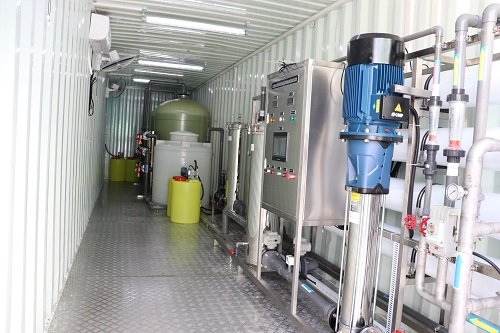
14TPH Containerized Reverse Osmosis System
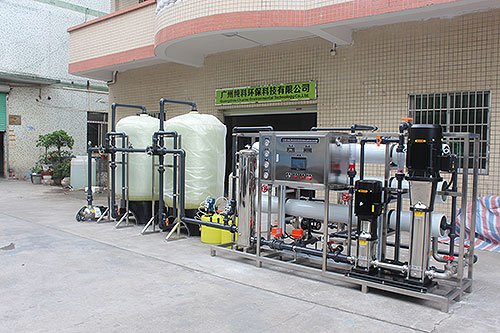
5000LPH Brackish Water Desalination System
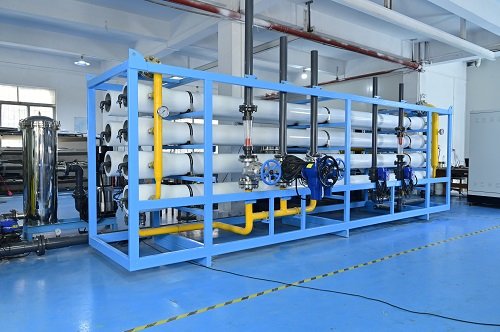
25TPH Reverse Osmosis System for Drinking
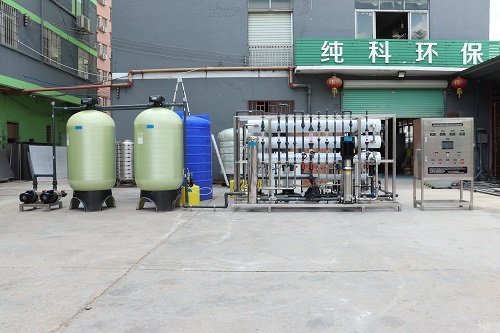
5000LPH RO Salt Water Purifier for Irrigation
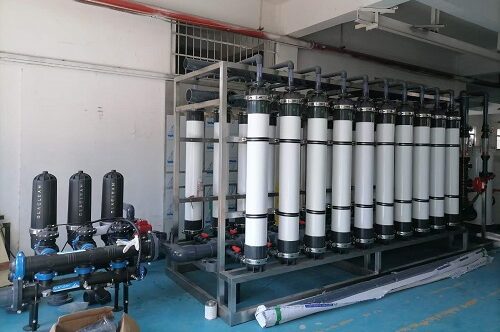
100TPH Ultrafiltration System for Borehole
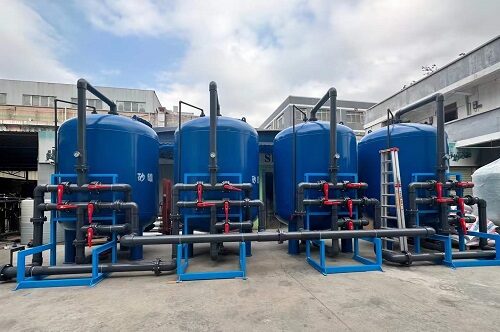
150TPH Multi-Media Filtration Carbon Steel Tanks
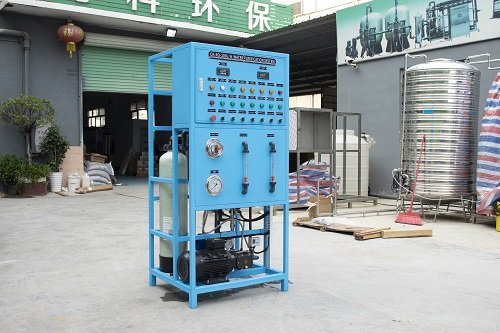
100LPH Reverse Osmosis System for Drinking
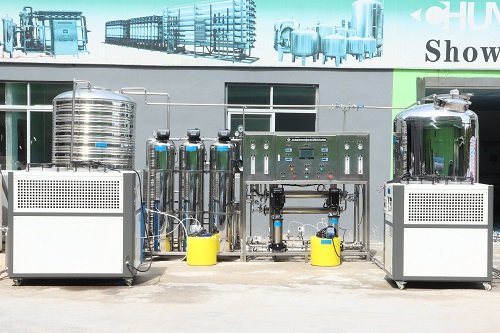
1000LPH Double Pass RO for Pharmaceutical
Reverse Osmosis Systems
Reverse osmosis systems are one of the most effective methods for purifying water. These systems use a semipermeable membrane to remove impurities, contaminants, and dissolved solids from water. Chunke Water Treatment offers a variety of reverse osmosis systems that can be customized to meet the specific needs of Guinea. Whether it’s treating seawater, brackish water, or government water supply, reverse osmosis systems from Chunke Water Treatment ensure high-quality drinking water for the population.
Ultrafiltration Systems
Ultrafiltration is another advanced water treatment technology provided by Chunke Water Treatment. This process uses a membrane with fine pores to remove suspended solids, bacteria, viruses, and other microorganisms from water. Ultrafiltration systems are highly efficient in treating surface water, rainwater, and freshwater wetlands. By utilizing ultrafiltration systems, Guinea can ensure that its water sources are free from harmful contaminants, providing a safe and reliable water supply for its people.
Media Water Filters
Media water filters are an essential component of water treatment systems. These filters use different types of media, such as sand, activated carbon, and anthracite, to remove impurities and sediments from water. Chunke Water Treatment offers media water filters that are designed to meet the specific requirements of Guinea’s water sources. Whether it’s reducing turbidity, removing chlorine, or improving taste and odor, media water filters play a crucial role in ensuring clean and refreshing drinking water.
In Guinea, Chunke Water Treatment, a leading supplier of reverse osmosis systems from China, has been actively involved in providing water treatment solutions. With over 20 years of industry experience, Chunke Water Treatment offers a wide range of reverse osmosis and water treatment systems tailored to meet the specific needs of industries and communities in Guinea
Chunke Water Treatment’s expertise in producing high-quality reverse osmosis systems has contributed to improving water treatment capabilities in Guinea. Their reliable and efficient RO plants have been implemented in various projects across the country, ensuring access to clean and safe drinking water.

